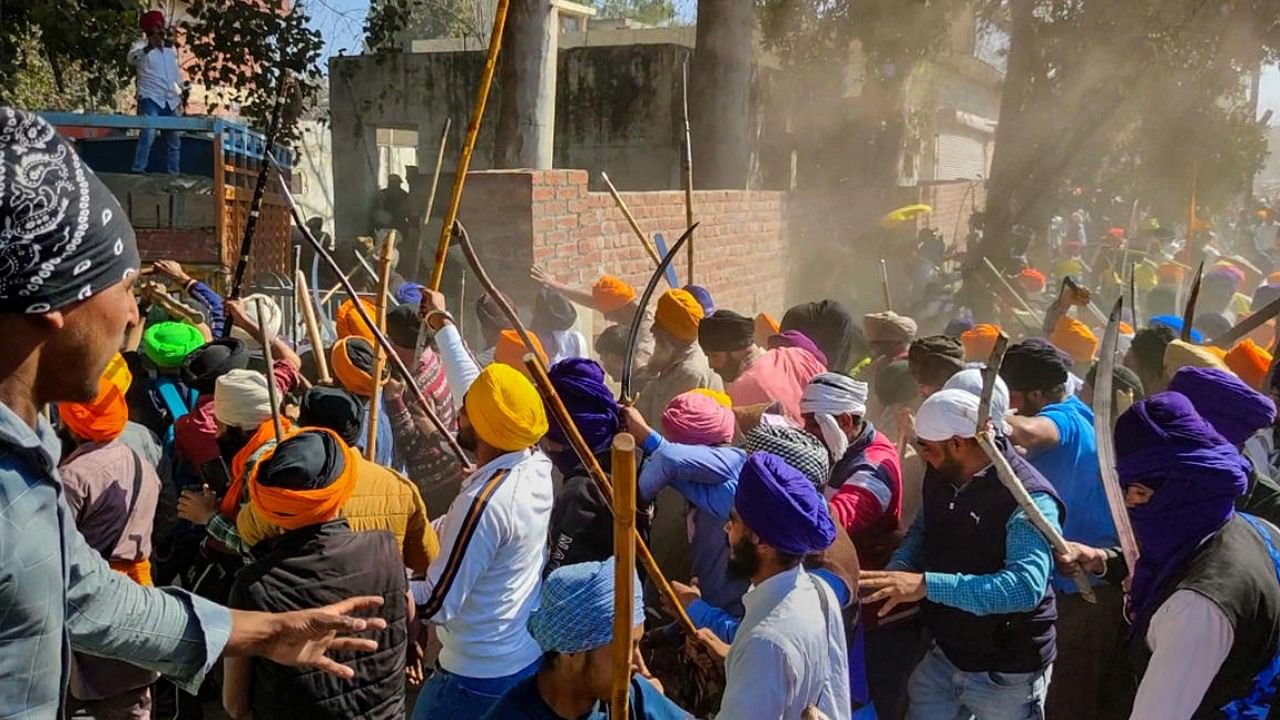
There are disturbing signs of a return to lawlessness and rise of radicalism in Punjab. Last week, there was a case of capitulation of the police force and, in fact, of the government, to a preacher who has declared his allegiance to the once-dreaded Khalistan leader Jarnail Singh Bhindranwale. The police in the Ajnala police station not only failed to stop a group of followers of the preacher, Amritpal Singh, armed with guns and swords, from barging into the police station but also accepted their demand for the release of a person who had been arrested on criminal charges. The police cited the evidence given by the protesters and rioters to secure his release from jail. Whatever explanation the senior police officials may have given for the incident, it shows a breakdown of law and order and of the due process of law.
The incident is a reminder of the situation that prevailed in Punjab in the 1980s when the Khalistan movement roiled the state. Amritpal Singh, who returned from the UAE some time ago, heads an organisation, Waris Punjab De, and has openly advocated the Khalistan cause. He has managed to get the support of hundreds of supporters, mainly radicalised youth, through his Amrit Prachar campaign. The situation has parallels to the rise of Bhindranwale and the situation then. The disenchantment with established politics and politicians, the rise in religious fundamentalism, and support from elements based outside the country are some common features of the situation that prevailed then and what exists now. There are also social and economic problems in the state that make it fertile for radical thought. All these make an explosive combination and present ominous signals.
Last fortnight, protesters went on a rampage on the Chandigarh-Mohali border, damaging police vehicles and attacking cops, demanding the release from jail of those convicted for the assassination of former Chief Minister Beant Singh. There have been a number of similar incidents in the recent past. It is unfortunate that there is no effective response from the state government or from the Centre. Amritpal Singh has openly declared his secessionist ideas and threatened to kill Union Home Minister Amit Shah, citing the example of former Prime Minister Indira Gandhi. Central agencies have not taken any action against him. Some Opposition parties have tried to fish in the troubled waters, again as in the early days of militancy in the state some decades ago. Governments, both at the Centre and in the state, should have a clear plan to deal with the situation and should avoid the mistakes of the past. Attempts to undermine each other and one-upmanship can lead to catastrophic results in the border state.